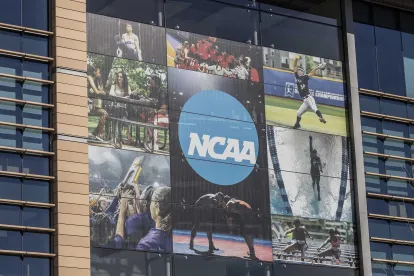University of North Carolina women’s tennis standout Reese Brantmeier has filed a class action complaint in the U.S. District Court for the Middle District of North Carolina alleging that the NCAA imposed “arbitrary and anticompetitive prize restrictions” that “prohibit student-athletes … from accepting cash awards, bonuses, and other monetary prizes … awarded through non-NCAA competitions.” The complaint takes a strident tone, seeking to “lift the veil of hypocrisy” on the NCAA for its disparate treatment of student-athletes in non-revenue individual sports like tennis and student-athletes in cash cow sports like football and men’s basketball.
Currently, NCAA regulations permit student-athletes to enter non-NCAA competitions against or with professional athletes but prohibit them from receiving prize money exceeding actual expenses. One notable exception to this rule is the Olympics under the Operation Gold Program. While current NCAA rules allow student-athletes to accept money for competing in the Olympics, Brantmeier alleges that the NCAA has been inconsistent in the application of this rule. According to the complaint, the NCAA’s application of the prize money rule is arbitrarily applied and often “turns on the specific competition at issue or the certain governing body’s terminology for monies awarded based on athletic performance in non-NCAA competition.” Brantmeier contends that the NCAA's application of this rule lacks consistency and fairness, particularly considering NCAA rules allowing student-athletes to profit from their name, image, and likeness (NIL). Brantmeier asserts that the NCAA lacks “any coherent economic explanation” for this disparity in treatment.
As to the antitrust injury specifically, Brantmeier alleges that the NCAA’s restrictions have deprived student-athletes of compensation earned for their athletic performance, which “unlawfully suppress[es] the earning ability of student-athletes competing in individual sports.” Among other anticompetitive harms, the NCAA “unreasonably restrain[s] trade by prohibiting student-athletes from obtaining more than a fixed amount of compensation … for their services,” including, as relevant here, “by specifically prohibiting the earning of prize money and awards for non-NCAA competitions beyond the NCAA-approved expenses incurred in participating in the non-NCAA events.”
The crux of the alleged antitrust violation is that “the NCAA’s anticompetitive, horizontal agreements (as implemented as rules and accepted and binding on NCAA member institutions) fix and severely limit the amount of compensation that college athletes may receive for their athletic services.” The plaintiff proposes sweeping relevant markets, identifying “the nationwide markets for the labor of NCAA Division I college athletes in the Individual Sports in which they compete.” The plaintiff reasons that, “[a]s monopsony buyers in the relevant labor markets, the NCAA and its members have the market power to control prices and exclude competition.” The proposed class includes those who “competed in athletic events that awarded Prize Money based on place finish or performance in those sports defined by the NCAA as Individual Sports” or “currently participate in NCAA Division I Individual Sports and intend to compete” in such events.
Notably, the complaint acknowledges that this suit does not come in a vacuum: “[I]t is no secret that the NCAA has come under fire for its unyielding stance against student-athlete rights and compensation… As widely reported, a number of student-athletes have filed class action antitrust lawsuits seeking redress for the harm caused by the NCAA’s anticompetitive and illegal rules.”
The NCAA is currently embroiled in a barrage of antitrust legal challenges, posing a persistent threat to its operations as the governing entity of collegiate athletics. This particular lawsuit aims to obtain an injunction restraining the NCAA from enforcing "unlawful and anticompetitive rules that restrict the ability of student-athletes, before or during their collegiate careers, to accept prize money in connection with non-NCAA competitions." Although the plaintiff is not seeking monetary damages, the case adds to the mounting legal pressure against the NCAA's amateurism regulations. The outcome of this legal battle, and others, could potentially reshape the landscape of college sports operations, ushering in significant changes to the current framework and regulations governing collegiate athletics.





 />i
/>i

